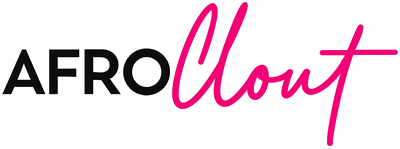Introduction: The Journey Begins
Like many Nigerians, I once believed making money online was only for tech experts or people living abroad. I had tried blogging, dropshipping, and even freelance gigs without much success. Then I discovered the power of affiliate links. It wasn’t an overnight miracle, but it worked. After weeks of learning and trying, I finally earned my first $200 online.
That moment changed everything. Not just because of the money, but because it proved online income is real — and possible for anyone willing to put in the work.
What Are Affiliate Links?
Affiliate links are unique tracking URLs that companies give you when you sign up as an affiliate. Anytime someone clicks your link and makes a purchase, you earn a commission.
Think of it like being a digital middleman. You don’t own the product, but you help the brand sell it. Platforms like Amazon Associates and ClickBank are global leaders in this space, while Nigerian-friendly options like Expertnaire and Lenx.ng allow locals to earn in naira or dollars.
How I Started With Affiliate Links
When I first heard about affiliate marketing, I was skeptical. Still, I signed up for two programs: one Nigerian and one international. I chose a niche I loved — personal finance and productivity tools.
I wrote blog posts and shared product recommendations on WhatsApp groups, Facebook pages, and even LinkedIn. At first, no one clicked. But then I noticed something: whenever I added real-life experiences to my posts, people trusted me more.
That’s when my affiliate links started bringing in results.
The First Sale
One evening, I checked my dashboard and saw I had earned $12. It might seem small, but it was proof that affiliate links worked. Over the next few weeks, the sales added up. By the end of the month, I had crossed $200.
The joy was indescribable. In Nigeria, $200 can handle bills, groceries, and even rent contributions. It felt like I had unlocked a new level of financial freedom.
Why Affiliate Links Work So Well
Affiliate marketing is powerful because:
- Low Risk: You don’t need to create a product.
- Scalable: One link can bring hundreds of sales.
- Accessible: Anyone with internet access can start.
- Trust Building: People buy when they trust your story.
In Africa, where unemployment is high, affiliate links open doors for students, parents, and even full-time workers looking for side income.
My Step-by-Step Strategy
1. Choose the Right Niche
I picked a niche I understood. Nigerians love financial tips, beauty products, and tech gadgets. That’s where the money flows.
2. Sign Up for Affiliate Programs
I joined both international and Nigerian platforms. Global brands gave me access to bigger products, while local ones made it easier to earn in naira.
3. Create Valuable Content
Instead of just pasting links, I wrote posts like “Top 5 Budget Apps for Nigerians” and “How I Save ₦20k Monthly.” I inserted affiliate links naturally.
4. Promote on Social Media
I shared my posts in communities that cared. Facebook groups, WhatsApp statuses, and even Instagram reels brought traffic.
5. Build Trust
People ignore random links. They click when they see you’ve used the product or genuinely recommend it.
Common Mistakes to Avoid
- Spamming links everywhere — People hate it.
- Promoting random products — Stay consistent with your niche.
- Ignoring traffic sources — No clicks means no sales.
- Not tracking performance — Analytics helps you see what works.
The African Advantage
Affiliate marketing in Africa is still growing. This means less competition compared to Western countries. Nigerians are hungry for solutions in fintech, e-commerce, and education. By being early, we have a chance to dominate niches before they get crowded.
Also, with platforms like Payoneer and Flutterwave, receiving payments has become easier than ever.
How to Scale Beyond $200
Once I made my first $200, I realized I could scale. Here’s how:
- Email Marketing: Build an email list of Nigerians interested in your niche.
- Paid Ads: Run small ads targeting local audiences.
- YouTube Videos: Demonstrate products and add affiliate links in the description.
- SEO Blogging: Optimize for Google so your posts rank and bring passive traffic.
For example, creating a blog post on “Best Phones for Students in Nigeria” and adding affiliate links to Jumia or Konga can earn steady commissions.
External Resources to Learn More
- Neil Patel on Affiliate Marketing
- ClickBank University Guide
- Shopify’s Affiliate Marketing Basics
- Expertnaire Nigeria
- Smart Passive Income Guide
Final Thoughts
Making my first $200 online with affiliate links showed me that the digital economy is alive in Nigeria. It’s not about luck — it’s about strategy, patience, and persistence.
If you’re still doubting, start small. Pick one niche, one program, and one platform. Share your story, be consistent, and watch as those little commissions grow into life-changing income.
Affiliate marketing isn’t just about money. It’s about freedom, choice, and the ability to earn beyond borders. And with the rise of digital adoption in Africa, the best time to start is now.
Discover more from Afroclout
Subscribe to get the latest posts sent to your email.


